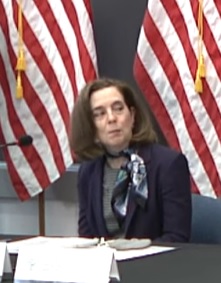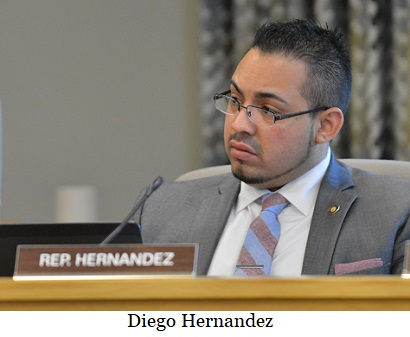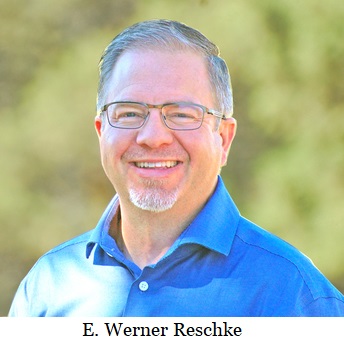 Post an Event
Post an Event
| Benton County Republicans’ Private Fundraising Event, “Bent-on Boots and Bling” with Trey Taylor |
| Friday, September 5, 2025 at 5:00 pm |
| Featuring Trey Taylor
Music Private Event
Friday, September 5, 2025 5:00-5:30 pm VIP Reception
5:30-8:00 pm Heavy Appetizers,
Auction, Concert
Red: $750 VIP Reception
Front Row Table Sponsor
White: $500 Table Sponsor
Blue: $50 per person
Limited Seating. Get Yours Now!!!
Support Local
Dress up: Bling, Cowboy, Patriotic Benton County Republican
FUNDRAISER
www.BentonGOP.org
Get your tickets today at:
https://www.bentongop.org/event-details/benton-county-republicans-fundraiser/form
About Trey:
Trey is the youngest African American Man in Country Music History. The Denver Post wrote
"It's impossible to miss his enthusiasm. With a fondness for cowboy boots, gaudy colors and dazzling jewelry, Trey Taylor could stand toe to toe with any of the Pop, Country or even Rap
contemporaries of his generation.“ |
| Trysting Tree Golf Club, 34028 NE Electric Rd., Corvallis |
Have a look at the deep state in Yamhill County
The Yamhill County Board of Commissioners
discussed the Yamhelas Westsider trail project. The application for the
Yamhelas-Westsider Trail was withdrawn on a 2 to 1 vote.
A
33-page letter was presented by the attorney representing opponents of the trail, Wendie Kellington chronicling years of malpractice by County officials. Finally, justice was served. The deep state at little old Yamhill County includes former and current Administrators Laura Tschabold and Ken Hufer, legal staff Todd Sadlo and Christensen Boenish, planning director Ken Friday and his assistants plus grants coordinator Carrie Martin. All lied, deceived and knowingly betrayed the public trust by pursuing a “bureaucrat power trip project†knowing the project could never qualify for the required permits. On five occasions the Land Use Board of Appeals told them so.
Government centric misinformation was featured by the local paper while dutifully censoring the true facts. The deep state was aided in this misdeed by former one term commissioners Stan Primozich and Rick Olson. First term Commissioner, Casey Kulla, is a third elected accomplice and remains unrepentant believing a bike path is needed to save the planet from automobile emissions. It is doubtful that any of them will acknowledge their mistakes or face any consequences. Officials from ODOT, armed with state and federal grant dollars, made it all possible. Skills acquired at posturing will save them from direct personal responsibility for misspent grant money.
Yamhill County may be on the hook for up to $2 million. They can sell land to recover near half of that and will have up to 20 years to absorb the remaining financial impact. It appears that the proponents hoped to have the county in so deep financially that public pressure would cause an outcry “to finish what was startedâ€. That outcry was made but the ruse didn’t work.
Where do public officials get these utopian dreams and the gall to promote them? From the Association of Oregon Counties? Why do these public officials think the laws don’t apply to them? Is it because they are never held accountable? Why is the public treasury so easily plundered? Is it because government institutions are rewarded for spending and not for thrift? The real tragedy is that thousands of Yamhill citizens believe the lies and will never get the truth. They are told Commissioners Starrett and Berschauer, who acted to protect individual property rights, are agents of an evil special interest group. The Yamhill County deep state and it’s legacy media mouthpiece sow the seeds of divisiveness while remaining immune from accountability safe in their salaried positions.
--Tom Hammer| Post Date: 2021-02-05 10:05:50 | Last Update: 2021-02-05 11:11:19 |
Land use laws get scrutiny
The Oregon House Committee on Housing heard three bills this week aimed at offering another solution to the housing crisis.
Oregon has approximately 750,000 acres zoned Rural Residential. Oregon’s land is currently governed by Oregon's land use system, which first appeared in the form of
SB 100, The Oregon Land Use Act, passed by the Oregon in 1973. Individual Counties develop Comprehensive plans that follow the overarching rules within the Land Use Act. Rob Bovette, Legal Counsel, Legislative Director, with Association of Oregon Counties summed it up well. “If you have seen one Oregon county’s land use plan, you have seen one Oregon County’s land use planâ€. Meaning that no two Oregon counties plans are identical because no two counties in Oregon are the same.
HB 2705 would allow for construction of accessory dwelling unit (ADU) in an area zoned for Rural Residential with specific parameters:
- Parcel of land is at least 2 acres
- There is already a single-family home on the property
- The ADU is 900sqft or less and is located within 100ft of the existing dwelling.
Representative Pam Marsh (D-Ashland) raised concerns that the legislation could allow for the ADUs to be used as vacation rentals if the county approves it and that does not solve the housing crisis Oregon is facing. It was also noted by Mary McCurdy, Deputy Director of 1,000 friends of Oregon that “The short-term rental use poses two challenges: it increases the transitory population of those not accustomed to farming practices in farm areas, which we have seen poses conflicts and problems for farmers...â€
HB 2778 looks to change the date associated with the definition of “historic homeâ€. Currently it is defined as dwelling built between “1850 to 1945â€. This changed would define “historic home†as a dwelling built “before 1974â€. This simple change would then allow for rural residential properties to add ADUs to properties where the house was built before 1974 thus potentially increasing housing availability in rural areas. Emma Land, Legislative Coordinator, Oregon Department of Land Conservation and Development, testified that “As this expanded definition of “historic home†would lead to increased density, we will likely see an impact on existing infrastructure, including roads and a county’s ability to respond to public safety emergencies. Higher densities near our rural working lands will likely create more conflicts between farmers and ranchers and the people living nearby. Additionally, the department is concerned that
HB 2778 would put more people and property at risk from wildfiresâ€.
HB 2655 prohibits counties from establishing minimum lot size of more than 1 acre for residential zoned land. The current lot size minimum is 2 acres. Two of the bill sponsors, Representative Brock-Smith and Representative Zika testified that the intent is simply to allow for more development on existing RR land to help rural Oregon Counties with their housing crisis. They went on to express that land use changes to assist with the housing crisis in the Oregon have already been addressed within the urban growth boundaries, this just looks outside of that area for an additional solution of the housing crisis.
A D V E R T I S E M E N T

A D V E R T I S E M E N T
Carol Macbeth with Central Oregon Land Watch, stated that the organization “strongly opposes decreasing minimum lot sizes in rural residential areas. A one-acre minimum lot size will result in sprawling rural residential development that directly conflicts with neighboring farms and ranches. According to the American Farmland Trust, low-density residential development poses the greatest risk to Oregon's working farmlands.
In addition, there is still some confusion surrounding the intent of the bill as was expressed by Multnomah County Department of community Services land use Planning Division. “It is not clear whether the amendment is intended to be limited to specific circumstances involving ADUs in rural residential zones, as regulated by
ORS 215.501, or if it is intended to apply broadly to all rural residential zones independent of whether an ADU is proposedâ€.
It will be up to the committee if these bills receive a work session and move forward “as is†or in some amended form. However, several things are clear. Oregon is in the midst of a housing crisis, one single solution will not solve the problem, and Oregonians are passionate about land use laws.
--Terese Humboldt| Post Date: 2021-02-05 08:46:53 | Last Update: 2021-02-05 09:36:02 |
Are teachers’ unions afraid of the competition?
The Senate Interim Committee on Education, Chaired by Senator Michael Dembrow (D-Portland), has proposed
SB 223, which would restrict public schools from
participating in interscholastic sports or activities with any private schools that are not registered with the
Oregon Department of Education. Currently, ODE policy states that “non-public education is recognized as a vital part of Oregon’s educational system. Private schools do not have to register with the State of Oregon, unless they are contracting with public school district for services.â€
If enacted,
SB 223 would change this and would:
- Require private schools to register with ODE annually
- Create an ODE advisory committee to oversee Oregon’s private schools
- Private schools would be required to submit reports and information for approval by the committee in the following areas:
- Curriculum
- Student behavior & discipline policies
- Instructional time
- Student mental health & abuse investigation
- Facility health and safety
- Teacher competency & background checks
If private schools are required to have ODE approval for all plans and procedures, they will become
de facto public schools. This is a grave threat to the future of private schools, religious freedom, parental rights and school choice.
SB 223 would undermine the broad educational goals of private education as well as essentially eliminate private schools’ jurisdiction over their own schools.
The Senate Committee on Education has provided no justification for creating these requirements. The
Committee’s fall meeting focused on the shortcomings of public education, not private. There was no mention of private school issues or the need for more oversight. But anti-choice sentiment was expressed by meeting presenters. For example, a “Reimagine Oregon†representative stated that “I don’t think the answer is having lots of choice.†Teachers' unions have been very
defensive of the gains made by alternative education during COVID-19 shutdowns.
A D V E R T I S E M E N T

A D V E R T I S E M E N T
The Supreme Court has upheld parents’ First and Fourteenth Amendment rights as they relate to education. The First Amendment grants parents the right to choose education for their children that doesn’t interfere with their religious beliefs. The Fourteenth Amendment protects parents’ rights to direct the education of their children and ensures that differences between public and private school cannot be eradicated. State regulation of private education must be reasonable and not without limits.
The families of over 50,000 Oregon schoolchildren choose private schools for a reason. Many parents have religious or conscientious objections to public schooling for their children. This bill is a threat to parents’ First Amendment right to religious freedom and Fourteenth Amendment right to liberty, which includes the right to choose private education for their children. This bill effectively puts a state committee in charge of all Oregon private schools. Private schools would become
de facto public schools, putting ODE in charge of curriculum, schedule, facilities, policies, and staffing.
Neither OSAA nor any private schools have requested this change. This creates another layer of government bureaucracy and more regulations on private schools which will take money, time, and attention away from actually educating kids. Oregon’s state budget is already strained due to the impact of COVID-19.
--Mary Miller 'Oregonians for Liberty in Education| Post Date: 2021-02-05 07:57:26 | Last Update: 2021-02-05 21:37:34 |
Is that really good government?
Senators Deb Patterson (D-Salem), Sara Gelser (D-Albany) and Representative Paul Evans (D-Monmouth) introduced SB 717, which provides an additional $10 per month to recipients of Supplemental Nutrition Assistance Program (SNAP) benefits to purchase personal hygiene items.
The Supplemental Nutrition Assistance Program (SNAP) is a federally funded program operated through the Department of Human Services (DHS) that helps low-income families buy healthy foods from qualifying, participating sellers. It does not cover hygiene items. SNAP benefits help more than half-a-million Oregonians, and more than 3,000 sellers participate. In order to receive SNAP, a person must meet work requirements unless you are physically or mentally limited, in treatment, in training/school, pregnant or have young children.
The fiscal impact is estimated at $50 million just for the benefit. But what wasn’t discussed in the hearing was the logistics and cost of administering $10. Governor Brown drug her feet when President Trump told states to supplement unemployment with $300 claiming it cost more than that to administer. It was an obvious exaggeration, but how much will that $10 cost and what will it buy that nonprofits aren’t providing?
Senator Gelser relayed a human-interest story during the hearing where she talked to a 15-year-old girl who had to shop-lift tampons. When that was addressed last year for girls and women in custody, in some cases these girls had to hand over used tampons and sometimes to a male person to get a new one. No one bothered to ask what that has to do with this bill, but it seems to be the way to stir up emotion for a bill.
This bill is a prime example of insufficient information to make a good decision. Writing a bill involves details for administration according to Notre Dame Law Review, which this bill lacks. We are seeing more of these laws being passed that leaves regulatory details to some unelected group to do as they please. This entire bill reads:
SECTION 1. (1) As used in this section:
(a) “Recipient†has the meaning given that term in ORS 411.806.
(b) "Supplemental nutrition assistance" means benefits issued under ORS 411.825
(2) In addition to supplemental nutrition assistance, the Department of Human Services shall issue to each recipient $10 per month to purchase personal hygiene items.
(3) The payments under subsection (2) of this section shall be made from General Fund appropriations by the Legislative Assembly that are paid into the Department of Human Services Account.
It isn’t an issue of handing a needy person $10 for toilet paper, but when that $9.95 24-pack of toilet paper costs taxpayers $25, is that really good government?
--Donna Bleiler| Post Date: 2021-02-05 07:51:42 | Last Update: 2021-02-02 21:58:36 |
Including “equity and racial justice directorâ€
Governor Kate Brown has announced several staffing changes, including the appointment of See Eun (pronounced "she-in") Kim as executive appointments director, effective February 9.
In this role, she will engage with a variety of stakeholder groups across the state to identify qualified candidates to serve on Oregon’s more than 250 boards and commissions, while balancing their needs and goals with demographic considerations such as geography, race, ethnicity, age, gender, military status, and experience.
"I am pleased that See Eun is joining my office as executive appointments director, especially as we work to build diversity among our state boards and commissions," said Governor Brown.
Kim comes to the Governor's Office from the Coalition of Communities of Color (CCC). In this role, she established pipelines in county and state government, business, and non-profit industries in Oregon and worked to position CCC as the resource hub for BIPOC leaders in Oregon. Prior to this, her professional experience includes positions with the New Leaders Council and Medical Teams International. She is a graduate of the University of Oregon.
Kim fills the vacancy created by the departure of Mary Moller.
In addition to Kim's appointment, the Governor announced the following changes to her policy staff.
Shannon Singleton has been named as director of equity and racial justice, filling the vacancy created by the departure of Sophorn Cheang.
A D V E R T I S E M E N T

A D V E R T I S E M E N T
Singleton currently serves as the Governor's housing policy advisor and co-coordinator of the Governor's Racial Justice Council.
Prior to joining the Governor's Office, she was the executive director at JOIN, a nonprofit organization in Portland. She has a background in social and racial justice work and has served on boards of community organizations and nonprofits.
Singleton received her degree from Portland State University, where she teaches Social Work. This appointment is effective February 22.
Linda Roman will serve as policy advisor for the Racial Justice Council.
Roman currently serves as the Governor's health policy advisor and previously served as the deputy health policy advisor and deputy legislative director. Prior to her work in the Governor’s Office, Roman held roles with the Oregon Latino Health Coalition and the Oregon Health Equity Alliance. She holds a bachelor's degree in political science from the Hatfield School of Government at Portland State University. This appointment is effective February 22.
Kristin Sheeran, the Governor's climate and energy policy advisor, will add transportation to her portfolio, effective immediately. Sheeran joined the Governor's Office in 2017. Her career includes positions in government affairs and academia.
--Bruce Armstrong| Post Date: 2021-02-04 23:12:55 | Last Update: 2021-02-04 23:33:19 |
Bill supports illegal aliens
Ganging up on employers, Senators Deb Patterson (D-Salem) and Sara Gelser (D-Albany) introduced
SB 569. Their idea of fair employment practices is to make it unlawful for an employer to require an employee or prospective employee to possess or present a valid driver's license as a condition of employment or continuation of employment.
It’s a short bill with a big punch at the free market
It is an unlawful employment practice for an employer to:
(a) Require, as a condition for employment or continuation of employment, an employee
or prospective employee to possess or present a valid driver’s license unless the ability to legally drive is an essential function of the job or is related to a legitimate business purpose.
(b) Refuse to accept from an employee or prospective employee, as an alternative to a
driver’s license, any other identification documents that are deemed acceptable for the purpose of forms prescribed by the United States Citizenship and Immigration Services that are used for verifying the identity and employment authorization of individuals hired for employment in the United States.
The pandemic has left unemployment high and employers need options to recover in the free market. Both Senators Patterson and Gelser’s Districts have a 31 to 33% non-white population, which makes up 94% of their unemployed. Patterson’s district has 17,900 unemployed and Gelser’s district has 5,404 unemployed. The best and most credible ID a person has is their driver’s license. What do law enforcement ask for at a traffic stop?
The bill is driven by a desire to help illegal aliens compete in the employment market.
SB 569 attacks an employer's ability to run their business efficiently using the DMV’s work for an eligible employee. DMV records are used by auto insurance companies for rating the cost of car insurance, and as a source for voter registration. So why isn’t it good enough for a business owner?
 
--Donna Bleiler| Post Date: 2021-02-04 20:36:37 | Last Update: 2021-02-05 08:46:53 |
“The next place protesters may go is McMinnvilleâ€
The McMinnville City Council
met on January 26 and passed a resolution penned by Mayor Scott Hill which condemned White Supremacy and blamed it for the insurrection at the Capitol Building in Washington D.C. on January 6th of this year.
Voting for the resolution were Council President Remy Drabkin, and Councilors Sal Peralta and Zack Geary. Opposed to making the resolution were Councilors Chris Chenoweth, Kellie Menke and Adam Garvin. Mayor Hill broke the tie voting for the resolution.
Chris Chenoweth read a prepared statement which captured the arguments for city council to oppose the resolution. He first condemned racism and violence saying they were never OK. But the resolution traps a bipartisan body into politically biased position. The march in D.C. was not racial, it was nationalism. Municipalities should not throw gas on the fire of state and national unrest. Council President Remy Drabkin agreed that the council should stick to the business of managing basic services and not involve staff time in out of area activities.
Sal Peralta favored the resolution “or the next place protesters may go is McMinnvilleâ€. He seems unaware that similar language gave BLM and Antifa the attention they craved to “protest†in nearby Portland. Adam Garvin stated that state and national politics is not the concern of the McMinnville City Council. Chenoweth added to his earlier remarks saying to back the resolution opens the door for constituents to demand partisan positioning of this bipartisan body in the future.
At that point Remy Drabkin withdrew her motion. Zack Geary then picked up the banner and restated the motion which Sal Peralta seconded. Remy Drabkin then joined in support of the resolution because her “ancestors had been persecuted by the Nazisâ€. Mayor Scott Hill, in a Ted Wheeler like move, broke the tie to pass the resolution, prepping the battlefield for expansion to McMinnville.
--Tom Hammer| Post Date: 2021-02-04 10:36:24 | Last Update: 2021-02-04 10:42:35 |
Strict regulations to replace “Acuity-based staffingâ€
Just when you thought your grandparents in residential care facilities will get the best care, in steps Senators Deb Patterson (D-Salem), Sara Gelser (D_Albany) and James Manning Jr. (D-Eugene) joining forces to introduce
SB 714 that removes that individualized care and establishes a minimum staffing ratio for residential care facilities and facilities with memory care endorsements.
ORS 443.432 (1) was enacted in 2017 states: “The Department of Human Services shall develop or obtain, maintain and use, in collaboration with residential care facilities, an objective, technology-based, acuity-based staffing tool.†The law suggests an individualized “acuity-based staffing tool†that best serves that particular residential care facility. It’s a partnership arrangement for the best care based on the needs of current residence, with flexibility for specific evaluation for special scheduling based on residents’ needs.
“Acuity-based staffing tool†is industry defined as the allocation of clinical expertise and caregiver resources necessary to ensure a resident’s quality of care/life, based on their medical complexity, ADL dependency and behavior challenges, as determined by a formal assessment process.
SB 714 removes the flexibility for special scheduling and creates a one-size-fits-all schedule. It allows a residential care facility to avoid the partnership and the acuity-based staffing tool that evaluates the needs of residents, and use the minimum staffing ratio of no less than one awake caregiver for every:
(a) Seven residents from 7 a.m. to 3 p.m.
(b) Nine and one-half residents from 3:01 p.m. to 11 p.m. and
(c) Seventeen residents from 11:01 p.m. to 6:59 a.m.
The residential care facility may have no less than one direct care provider for every:
(a) Five residents from 7 a.m. to 3 p.m.
(b) Nine and one-half residents from 3:01 p.m. to 11 p.m. and
(c) Ten residents from 11:01 p.m. to 6:59 a.m.
SB 714 drifts away from the acuity-based staffing tool that was the focal point of enacting OAR 443.432 that incorporated the industry definition to ensure families that their loved ones receive the care and attention they need.
--Donna Bleiler| Post Date: 2021-02-04 07:33:29 | Last Update: 2021-02-02 21:48:24 |
This seems like a good time to expand school choice, not restrict it
As Governor Browns makes noises about opening public schools, parents continue to be discouraged and are looking for alternative education options. Representative Marty Wilde (D-Eugene) wants to limit their options. He has sponsored
HB 2195 prohibiting student from enrolling in virtual public charter school located in school district in which the student is not a resident if student's resident school district or education service district offers appropriate online instruction.
HB 2195 reads:
A student may not enroll in a virtual public charter school that is not located in the school district in which the student is a resident if the school district in which the student is a resident, or the education service district that serves that school district, offers appropriate online instruction and space is available for the student in that instruction. For purposes of this paragraph, online instruction is appropriate if the instruction is provided:
(A) Primarily online, with no more than 10 hours of instruction per five-day week provided to students at a common physical location; and
(B) For the grade in which the student is enrolled.
Applies first to 2022-2023 school year, with exception for students who are already enrolled in virtual public charter schools and who would be enrolled in grade 12 for 2022-2023 school year.
If school is not available, then out of district enrollment must receive approval if more than 3% of students are enrolled outside the school district. This has led some to homeschool along with the lack of choice and lack of adequate instruction during the pandemic. By putting more restriction on school choice, it will encourage parents to continue homeschooling. One father told Northwest Observer that they withdrew their son from public virtual school because he wasn’t learning anything. They have found that homeschool courses are more vigorous. He commented that the 10 hours of instruction per five-day week is not adequate.
Michaela Hammerson told Northwest Observer, “the quality of public school online was awful (March-June). My oldest (a sixth grader) is a TAG student. Before the pandemic he was not being challenged. After COVID-19 started, he learned nothing.â€
On the brighter side, Representative Jack Zika (R-Redmond) introduced
HB 2716 that increases the 3% to 8% of students in a school district who may enroll in virtual public charter school not sponsored by the school district without receiving approval from the school district.
Hammerson said school was delayed opening for her kindergartner, “At the beginning of the year we were rejected by multiple charters due to limits on enrollment. We ended up having to purchase online curriculum to get my Kindergartner in consistent school this year. We need more options. Online charters already have this remote learning figured out. Let them teach!â€
A D V E R T I S E M E N T

A D V E R T I S E M E N T
Public schools have had the tools to plan for online/remote learning for years. Each student has a laptop and many districts provide low-income families with internet for free. Hammerson said, “It's disappointing that they didn't use those tools until we reached a crisis. Alternatively, many charters were proactive and are now better prepared to teach than public schools.â€
Increasing school choice may also improve the public options if competition is taken seriously by public schools and school districts or more parents will look elsewhere for education options.
--Donna Bleiler| Post Date: 2021-02-03 16:32:23 | Last Update: 2021-02-03 17:36:24 |
“This is a full-on assault on working families looking to recoverâ€
Today, the Senate Committee on Finance and Revenue, Chaired by Senator Ginny Burdick (D-Portland), had a public hearing on an amendment to
SB 137, which would repeal certain tax relief provisions from the state tax code. Because the Oregon and federal tax code are connected, the amendment would repeal important measures passed in the federal CARES Act meant to ease the burden of lock-downs that devastated working families and small businesses.
“The CARES Act and federal relief was designed to help working families and businesses make ends meet, not be siphoned off to state government,†said Senate Republican Leader Fred Girod (R-Lyons). “Make no mistake: this is raising taxes on businesses during a time when they need our help the most. Our small businesses have sacrificed a lot in the name of public health. Doing away with this assistance would create even more uncertainty for working Oregonians.â€
“This amendment is a full-on assault on working families looking to recover,†said Senator Lynn Findley (R-Vale), Assistant Republican Leader and member of the Finance and Revenue Committee. “In the middle of a pandemic, Oregonians can’t afford for lawmakers to be messing with important tax relief that the CARES Act provided for working families. As proposed, this amendment would even increase taxes on small businesses that are losing money because of lock-downs.
“Oregon’s economic recovery is far behind the rest of the country. Major tax increases on working families and employers would stall the recovery, slow hiring, and ultimately deprive the state of revenue in the long run. The best way to bring revenue into the state is a safe and rapid reopening of Oregon businesses. Senate Republicans are committed to returning livelihoods to working families.â€
A D V E R T I S E M E N T

A D V E R T I S E M E N T
Oregon has had a continuing connection ("rolling reconnect") to the federal definition of taxable income since tax year 2011. Other ties to federal tax law must be updated on a regular basis, with December 31st being the usual connection date. Over the past forty years, the state has rotated between a policy of automatic connection to federal tax base changes and connection to the federal code at a particular point in time.
Oregon lost 25,500 jobs in December, raising unemployment to 6.4%, a 7% increase from November’s number. The leisure and hospitality sectors have been devastated, with 28,600 jobs lost in December alone. The United States has recovered 56% of the jobs lost during the pandemic, while Oregon has only recovered 37% of its jobs lost during the pandemic.
--Staff Reports| Post Date: 2021-02-03 16:19:37 | Last Update: 2021-02-03 16:32:23 |
Conduct Committee Upholds Violation of Legislative Personnel Rules
Representative Diego Hernandez was found to have violated several Legislative rules on Personnel by the House Committee on Conduct. The Committee consists of two Democrats, Representatives Julie Fahey (D-Eugene) and Tawna Sanchez (D-Portland) and two Republicans, Ron Noble (R-McMinneville) and Raquel Moore-Green (R-Salem).
Tearful testimony was provided by "Subject Two," a person who had, but attempted to end, a relationship with Representative Hernandez. She detailed several attempts to end the relationship and how Hernandez persisted and used his position to pressure her.
According to the
investigator's report,
Subject Two stated that Rep. Hernandez was verbally aggressive in connection with her work at the Capitol after their intimate relationship ended. Rep. Hernandez denied this. As set forth above, Subject Two stated that she was uncomfortable and felt unsafe doing business at the Capitol (either in-person or virtually) due to the abusive nature of her relationship with Rep. Hernandez.

At one point during the work session, in which the committee members voted on Representative Hernandez's conduct, Chair Julie Fahey remarked that the lack of discussion did not indicate a lack of interest, but instead indicated that the offenses were so clear-cut. Committee members voted unanimously on all of the nearly all of the factual and conclusive allegations against Hernandez.
Hernandez has
contended that the committee has been driven by the political agenda of House Speaker Tina Kotek (D-Portland)
The committee will reconvene tomorrow, Wednesday, February 3 at 5:30pm. In the past, Hernandez has been vocal on social media regarding the conduct of Republicans.
--Staff Reports| Post Date: 2021-02-02 19:17:51 | Last Update: 2021-02-02 19:47:38 |
The negative economic impact to these communities will be extremely challenging
Governor Brown has taken steps to close three Oregon correctional facilities over the next two years:
- Mill Creek in Salem
- Shutter Creek in North Bend
- Warner Creek in Lakeview.
According to State Representative E. Werner Reschke, the negative economic impact to these communities will be extremely challenging. Representative Reschke is against closure and states his strong support for keeping Warner Creek Correctional Facility open.
“The political leadership remains in favor of closing Warner Creek Correctional Facility by mid-2022. I am strongly committed to making it clear to the Governor and legislators in Salem that closing Warner Creek Correctional Facility is a grave mistake for several reasons,†said Representative Reschke. Reschke has joined Senator Findley in Chief Sponsoring
SB 19, which upon closure would transfer Warner Creek Correctional Facility to Lake County and allow the county a one-time land use change. This allows the county to use the building, or find a private entity to lease or buy the facility.
“While
SB 19 does not immediately replace all the lost jobs due to a prison closure, it
provides a far better future for Lake County than the State’s plan of shuttering the facility for non-use,†said Rep. Reschke.
--Staff Reports| Post Date: 2021-02-02 18:30:37 | Last Update: 2021-02-02 19:17:51 |
Read More Articles























